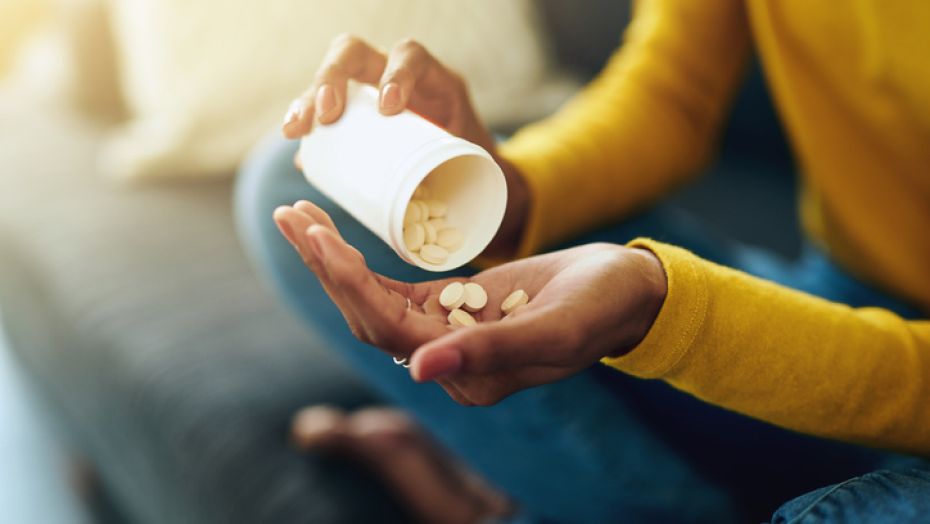
Medications You Should Never Mix with Alcohol
Medications prescribed by your provider are typically safe and effective when used appropriately. However, when combined with alcohol, this can be harmful. Additionally, over-the-counter (without a prescription) medications and herbal remedies can also have harmful effects when combined with alcohol.
So, what do Advil, Robitussin, cholesterol medicines and Ambien all have in common? They’re all medicines you shouldn’t take with alcohol. And there are several other medicines on that list, too.
Side Effects of Alcohol with Medications:
- 1. Alcohol can make you drowsy or lightheaded just as some medicines.
- 2. Small amounts of alcohol can make it dangerous to drive, and in combination with certain medicines places one at an even greater risk.
- 3. Some medications contain up to 10% of alcohol with some of the highest alcohol concentrations in cough syrup and laxatives.
- 4. Alcohol effects women differently making them more susceptible to alcohol-related damage to organs such as the liver.
- 5. Older people face a greater risk for harmful alcohol– medication interactions which can lead to can lead to falls and serious injuries.
- 6. Alcohol and medicines can interact harmfully even if they are not taken at the same time.
Commonly Used Medicines (Both Prescription and Over-the-Counter) That Interact with Alcohol
Allergies/Cold/Flu
Symptoms: Drowsiness, dizziness; increased risk for overdose.
Medications including, but not limited to:
- Alavert
- Atarax
- Benadryl
- Claritin
- Dimetapp Cold & Allergy
- Sudafed Sinus & Allergy
- Tylenol Allergy Sinus
- Tylenol Cold & Flu
Chest Pain (Angina), Coronary Heart Disease
Symptoms: Rapid heartbeat, sudden changes in blood pressure, dizziness and fainting.
Medications including, but not limited to:
- Isordil
Anxiety
Symptoms: Drowsiness, dizziness, increased risk for overdose, slowed or difficulty breathing, impaired motor control and memory problems.
Medications including, but not limited to:
- Ativan
- Klonopin
- Paxil
- Valium
- Xanax
Arthritis
Symptoms: Ulcers, stomach bleeding and liver damage.
Medications including, but not limited to:
- Celebrex
- Naprosyn
Blood Clots
Symptoms: Possible blood clots, strokes, or heart attacks. Occasional drinking may lead to internal bleeding. Heavier drinking may cause bleeding or may have the opposite side effect.
Medications including, but not limited to:
- Coumadin
Cough
Symptoms: Drowsiness, dizziness and increase the risk for overdose when combined with alcohol.
Medications including, but not limited to:
- Delsym
- Robitussin Cough
- Robitussin A-C
Depression
Symptoms: Drowsiness, dizziness, increase the risk for overdose, increase feelings of depression or hopelessness, impaired motor control, increased alcohol effect, and liver damage.
Medications including, but not limited to:
- Abilify
- Celexa
- Clozaril
- Effexor
- Geodon
- Invega
- Lexapro
- Luvox
- Paxil
- Pristiq
- Prozac
- Wellbutrin
- Zoloft
- Zyprexa
Diabetes
Symptoms: Abnormally low blood sugar levels, nausea, vomiting, headache, rapid heartbeat, sudden changes in blood pressure, and weakness.
Medications including, but not limited to:
- Glucotrol
- Glucophage
- Glynase, Micronase
Enlarged Prostate
Symptoms: Dizziness, fainting and drowsiness with mixed with alcohol.
Medications including, but not limited to:
- Cardura
- Flomax
Heartburn, Indigestion, Sour Stomach
Symptoms: Rapid heartbeat, sudden changes in blood pressure and an increased alcohol effect.
Medications including, but not limited to:
- Reglan
- Tagamet
High Cholesterol
Symptoms: Liver damage, increased flushing and itching, and increased stomach pain.
Medications including, but not limited to:
- Crestor
- Lipitor
- Pravachol
- Pravigard
- Zocor
Muscle Pain
Symptoms: Drowsiness, dizziness, increase the risk of seizures, slowed or difficulty breathing, impaired motor control, and memory problems.
Medications including, but not limited to:
- Flexeril
- Soma
Nausea, Motion Sickness
Symptoms: Drowsiness, dizziness, and increased risk for overdose.
Medications including, but not limited to:
- Antivert
- Dramamine
- Phenergan
Pain (Muscle Ache, Minor Arthritis Pain), Fever, Inflammation
Symptoms: Upset stomach, bleeding and ulcers, liver damage and rapid heartbeat.
Medications including, but not limited to:
- Advil
- Aleve
- Excedrin
- Motrin
- Tylenol
Severe Pain, Migraines
Symptoms: Drowsiness, dizziness, increase the risk for overdose, slow difficulty breathing, memory problems and impaired motor control.
Medications including, but not limited to:
- Demerol
- Fiorinal with codeine
- Percocet
- Vicodin
Seizures
Symptoms: Drowsiness, dizziness, increased risk of seizures, unusual behavior and changes in mental health (such as thoughts of suicide).
Medications including, but not limited to:
- Dilantin
- Neurontin
- Keppra
- Lamictal
- Lyrica
Sleep Problems
Symptoms: Drowsiness, sleepiness, dizziness, slowed or difficulty breathing, impaired motor control and memory problems.
Medications including, but not limited to:
- Ambien
- Lunesta
- Prosom
- Restoril
- Unisom
To avoid inadvertent mixing of medications with alcohol, remember the following:
1. Read the label on all medication bottles to find out exactly what ingredients a medicine contains.
2. Ask your pharmacist if you have any questions about how alcohol might interact with any medications that you are taking, including ones not listed above.



